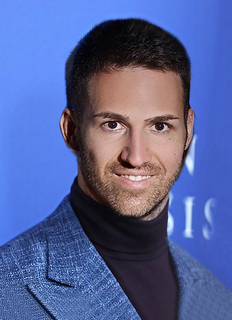Connect with our experts to learn more and start your journey to a successful career today!

How to Become a Full Stack Developer without College
As the global economy continues to embrace technological solutions to all manner of business problems and the U.S. economy transitions to more of a service model, tech professionals are in increasingly high demand. Average salaries reflect that: Indeed states that full stack developer salaries average nearly $110,000 per year, making these positions both appealing and lucrative.
Unfortunately, job descriptions for these positions haven’t kept pace. Many of them list a bachelor’s degree in computer science as a prerequisite for many, if not most, tech roles—but is this necessary? Two factors suggest it isn't. The first is that the number of tech positions that open each year vastly outweighs the number of college graduates with computer science (or related) degrees, making it a logistical impossibility to enforce this standard.
The second reason is the increased specialization of tech position roles. Twenty years ago, a much broader knowledge base was required, and tech personnel could cover numerous functions in a generalist-based environment. However, since then, the rapid evolution in technology means that specialists in team environments are far more common, allowing individuals to excel with a more precisely defined skill set.
What Is a Full Stack Developer?
One of the cornerstone roles in today’s service-based tech economy is a full stack developer. These professionals focus on web-based and mobile app development, which are generally divided into two areas: front end and back end. The front end involves the customer interface (CI) and user experience (UX); it deals with everything the end-user sees and interacts with. The back end of an app or website is everything that powers its core functionalities.
Many people specialize in one or the other of these, but a full stack developer is someone who can do both. Employers recognize the numerous advantages this level of experience has. Communication between the front end and the back end developer is streamlined because the same person fills both roles. There are fewer glitches and bugs, and development speed is generally higher. This is why full stack developers average $39,000 more per year than either front end or back end specialists.
Enroll in our Web Development Bootcamp program to get started.
Is It Better to Have Full Stack Experience or a CS Degree?
Although a computer science degree isn’t required, that doesn’t mean it’s a bad thing to have at all. A CS degree will open numerous doors and expand your career possibilities substantially. The issue when deciding whether to earn one really comes down to this: is it worth it?
From an employability perspective, the answer is yes. One in five full stack developers (21 percent) have a computer science degree, approximately eight times the average of other tech roles. This means that the full stack developer market tends to be far more competitive than either front end or back end specialists face. While having a bachelor’s in CS doesn’t guarantee employment by any means, it does mean that you compete well with the higher echelon of full stack developers, giving you an advantage when it comes down to competing in the job market.
From a profitability perspective, not pursuing a CS degree makes more sense. Depending on where you go to school, whether you graduate in four years or five, and other financial factors, earning the degree could cost between $50,000 and $100,000. The higher cost, however, is time. You can become a proficient full stack developer within a year or two if you pursue targeted training, indicating you’ll be earning well within six figures by the time your peers graduate from college with little experience and a significant amount of student debt.
At the end of the day, which matters more—employability or profitability? In a static job market, employability would take precedence because you need to have a job before you can be profitable with it. However, that isn't the environment in which we find ourselves. Full stack developers are in high demand, with the Bureau of Labor Statistics estimating that the need for these professionals will grow "much faster than average" when compared with the overall economy over the next decade. More jobs exist than professionals to fill them. Unless you have other reasons for pursuing a degree in computer science, pursuing independent training and certification to become a full stack developer is the wiser choice.
What Skills Do I Need to Become a Full Stack Developer?
Since being a full stack developer requires expertise in both the front and back ends of web and app development, let’s divide the skills you’ll need along those lines. To develop the back end, you'll need to be able to work with various operating systems, databases, web servers, understand web frameworks, and how your site or app interacts with your server. Programming ability is critical here, and some of the most common languages you’ll need to know include PHP, Ruby, Java, Python, C#, and JavaScript. These power an impressive number of programs and applications worldwide, providing a solid foundation for full stack development. You don’t need to be proficient in all of these to be a full stack developer, but you should be an expert in several and familiar with all of them. Increased specialization is recommended, but these are where you should start.
For effective front end development, you should be proficient in HTML, CSS, JavaScript, and some of the more common JavaScript libraries like React. While back end development is more of the “science” side of programming, front end development is the “art” side. The ability to design user interfaces that are simple, attractive, and easy to interact with is essential. If visual creativity isn't your strong suit, consider taking a few graphic design courses to increase your proficiency in this area.
What Experience Should I Have to Become a Full Stack Developer?
Full stack developers aren’t just exposed to front end and back end programming, they’re experts in both. Before you can advertise yourself as a full stack developer, you should have an extensive background in completed projects that encompass both roles. You don’t have to be hired into a development position to do this; in fact, you don’t have to be employed in the tech field at all. You can learn to be a front and back end developer on your own and create projects that reflect your interests.
Once you're proficient at creating dynamic, attractive user interfaces and can program robust, flexible back end solutions, you're ready to claim your spot as a full stack developer. Getting to this point often involves working in either a front end or development position while honing your skills on the other side when you have the opportunity.
Bootcamps and targeted training courses are often the best way to develop this experience. You’ll be faced with specific training and project assignments that reflect the skills you were just taught, and these can form the foundation for your development portfolio.
What Should I Include in My Full Stack Portfolio?
A robust full stack portfolio should reinforce your resume, and your resume should match the job for which you’re applying. By the time you begin applying for full stack development positions, you should have more projects under your belt than you have space to include them in a portfolio, so you have options. Begin by looking at the position description for the role you want. Evaluate the required skills and rework your resume to emphasize your experience in those areas. Finally, select the projects that best demonstrate the abilities that the job requires.
You don't have to wait until you're ready to apply for a job to do this, though. If you’re planning to enroll in the QuickStart Full Stack Developer Bootcamp, then you’ll come out of it with a portfolio project.
You can then peruse job postings from the very first day you begin working toward a full stack development role. Find ones that appeal to you, make a note of the required skills, and incorporate those requirements in your education and projects. By the time you're ready to take the leap, you'll have a resume and portfolio customized to fit your dream position.
The Case for Becoming a Full Stack Developer
Although computer science degrees are popular and can undoubtedly help you, most full stack developers don't have one. In the current economic environment, it doesn’t make sense to pursue a bachelor’s degree when you can prioritize experience. You can get all of the education you need through online courses and targeted boot camps.
LinkedIn found that full stack engineers were the #4 most popular emerging top job in 2020 and stated that job postings for full stack developers have increased by 35 percent every year since 2015. The future is bright for full stack developers, and there’s never been a better time to start preparing for this role than today.
